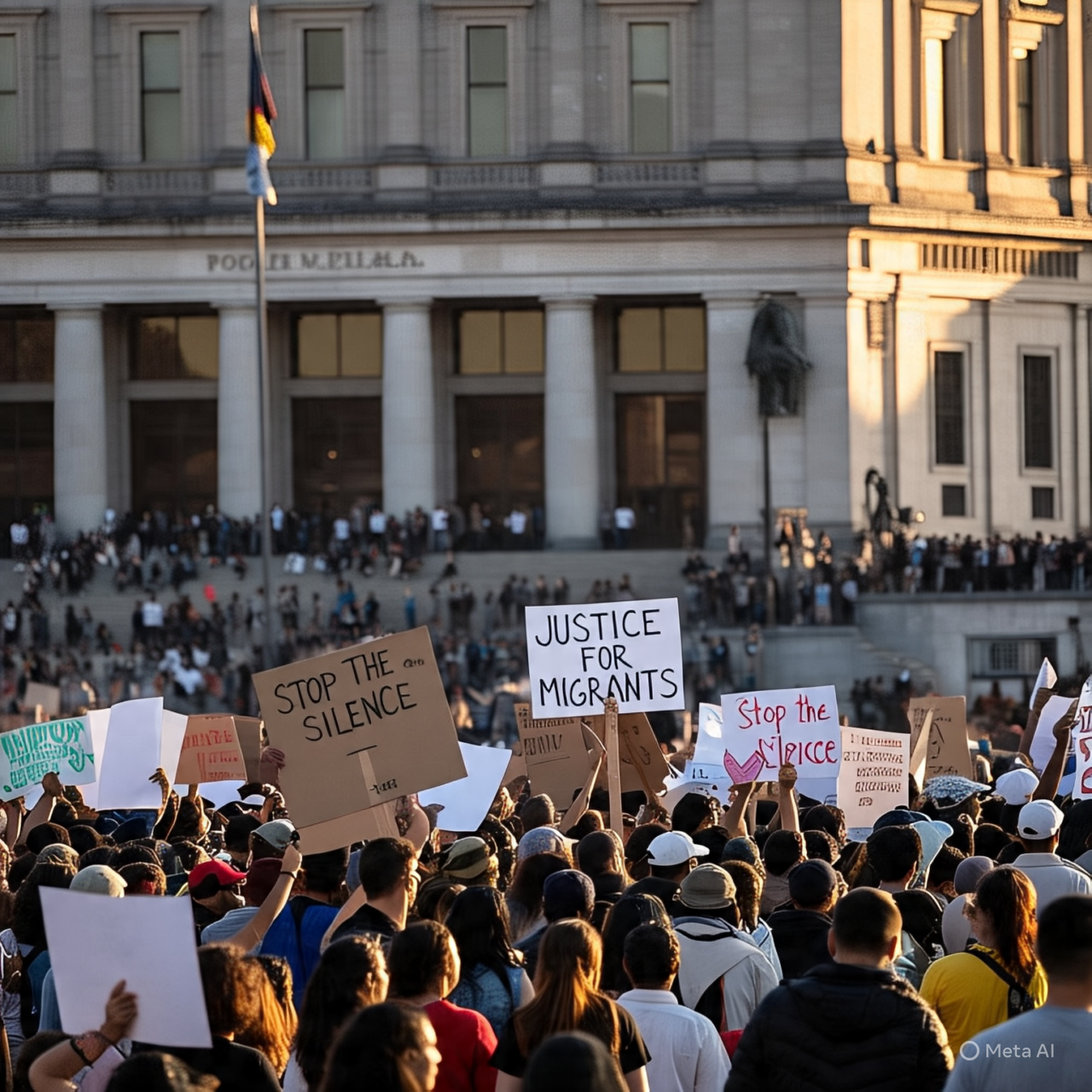
Public Anger Mounts as Americans Accuse Judicial System of Failing to Protect Nation Amid Immigration Crisis
Washington, D.C. — A growing chorus of Americans is expressing deep frustration with what they describe as the judicial system’s failure to uphold the rule of law and protect the nation’s citizens amid an ongoing immigration and public safety crisis. In particular, critics are accusing judges — including those in the Supreme Court — of being “activist” and politically motivated, selectively enforcing laws while remaining silent during periods of alleged government misconduct.
This wave of anger has found fuel on social media platforms, where posts denouncing the judiciary’s role — or lack thereof — have gone viral. One widely shared statement reads: “Our judicial system needs rebuilt. No longer for the good of all the people. Where were all these activist judges when Biden was flying them in and they were murdering, dismembering, raping and torturing our children?”
Concerns Over Secret Migrant Flights and Violent Crime
The backlash intensified following multiple investigative reports, including one from The New York Post (Nov 2021), which revealed that the Biden administration had quietly arranged for late-night flights of unaccompanied migrant minors and families into various U.S. cities without public notice or consultation with local officials.
Critics argue that these operations lacked transparency and accountability — and that the judiciary failed to intervene, despite lawsuits from Republican-led states challenging federal immigration policies. “If the courts aren’t willing to step in now, when will they?” said Tom Fitton, President of Judicial Watch. “There’s a growing sense that the judicial system is no longer working for the American people.”
Although specific claims of migrants committing violent crimes are difficult to verify en masse, isolated cases involving serious offenses by undocumented individuals have drawn national attention. Critics point to such incidents as evidence of a broader systemic failure and cite the lack of judicial oversight as a contributing factor.
Judicial Deference or Political Blindness?
Legal experts argue that the courts often defer to the executive branch in matters of immigration — especially in areas involving border security and resettlement — unless there’s clear constitutional overreach. “The judiciary has long held that immigration enforcement falls primarily within the powers of the executive,” said Professor Harold Jacobs of Georgetown Law. “It’s not accurate to suggest that judges could or should micromanage those decisions.”
Still, some observers believe this deference has gone too far. “The silence from the courts during major shifts in federal immigration policy is deafening,” said former federal prosecutor Andy McCarthy in a National Review op-ed. “The courts had no problem halting Trump’s border policies, but when Biden reversed them, the same judicial urgency was nowhere to be found.”
The Call for Reform Grows Louder
Amid this frustration, there are increasing calls to overhaul the judicial system, particularly in regard to immigration and national security. Proposed reforms include:
- Term limits for federal judges, including Supreme Court Justices.
- Jurisdictional restrictions to prevent courts from blocking state-led immigration enforcement.
- Stricter rules on judicial recusal, to prevent conflicts of interest.
The issue is likely to feature heavily in the 2024 presidential and congressional elections, as both parties clash over the direction of the legal system and the border crisis.
Conclusion
As the U.S. grapples with a volatile immigration landscape and rising political polarization, the role of the judiciary is under increasing scrutiny. While defenders argue the courts are constrained by constitutional boundaries, critics contend that selective enforcement and silence in the face of executive overreach have undermined public faith.
The debate reflects a broader question: Is the American judicial system still impartial — or has it become yet another battleground in a deeply divided nation?
